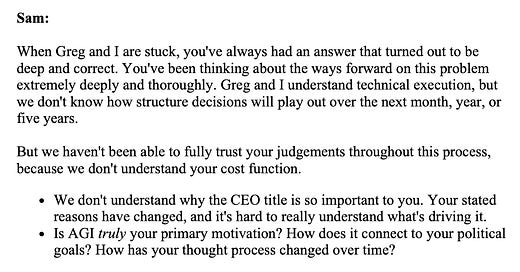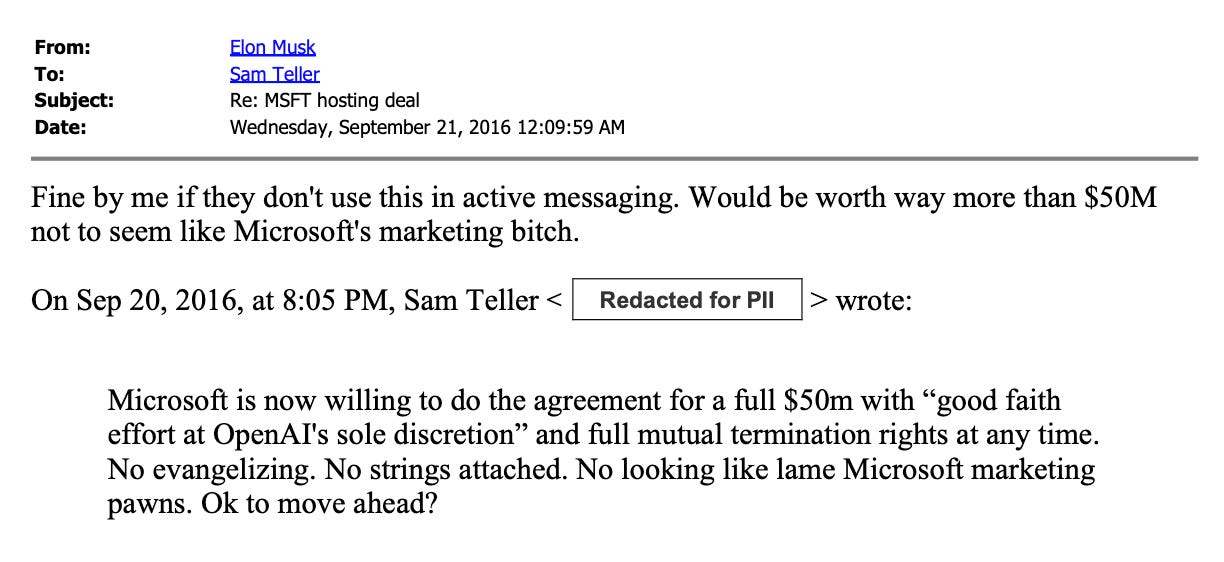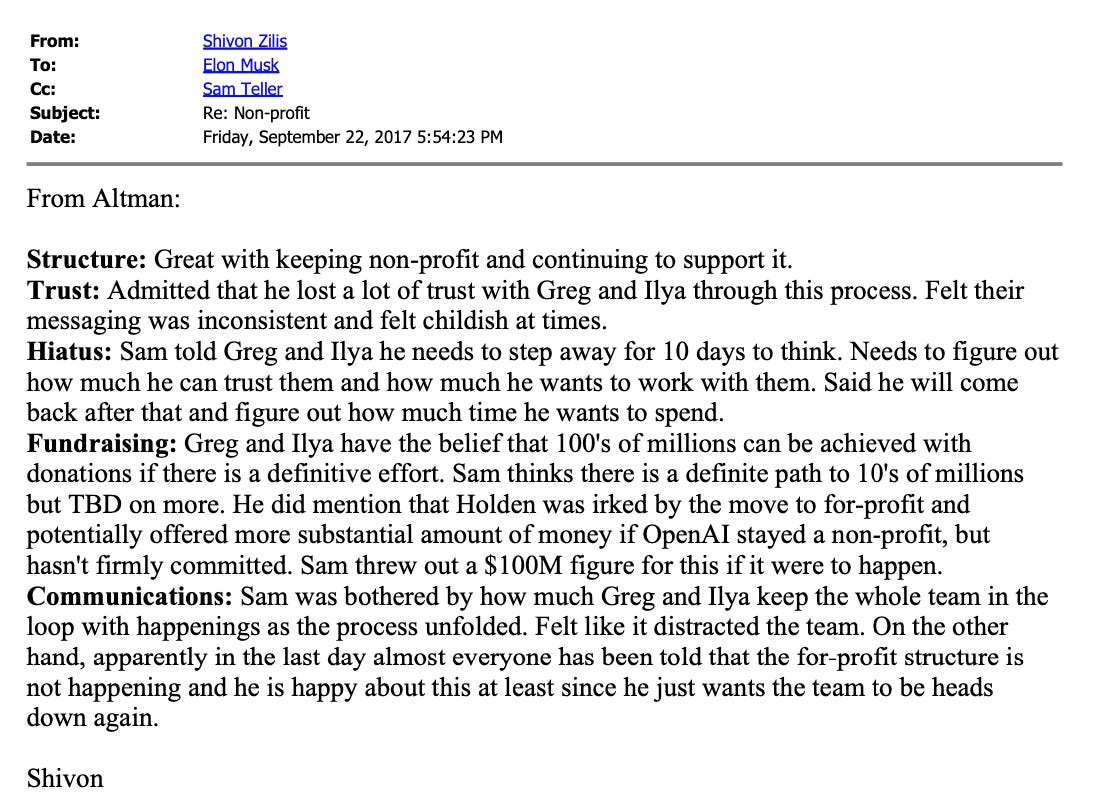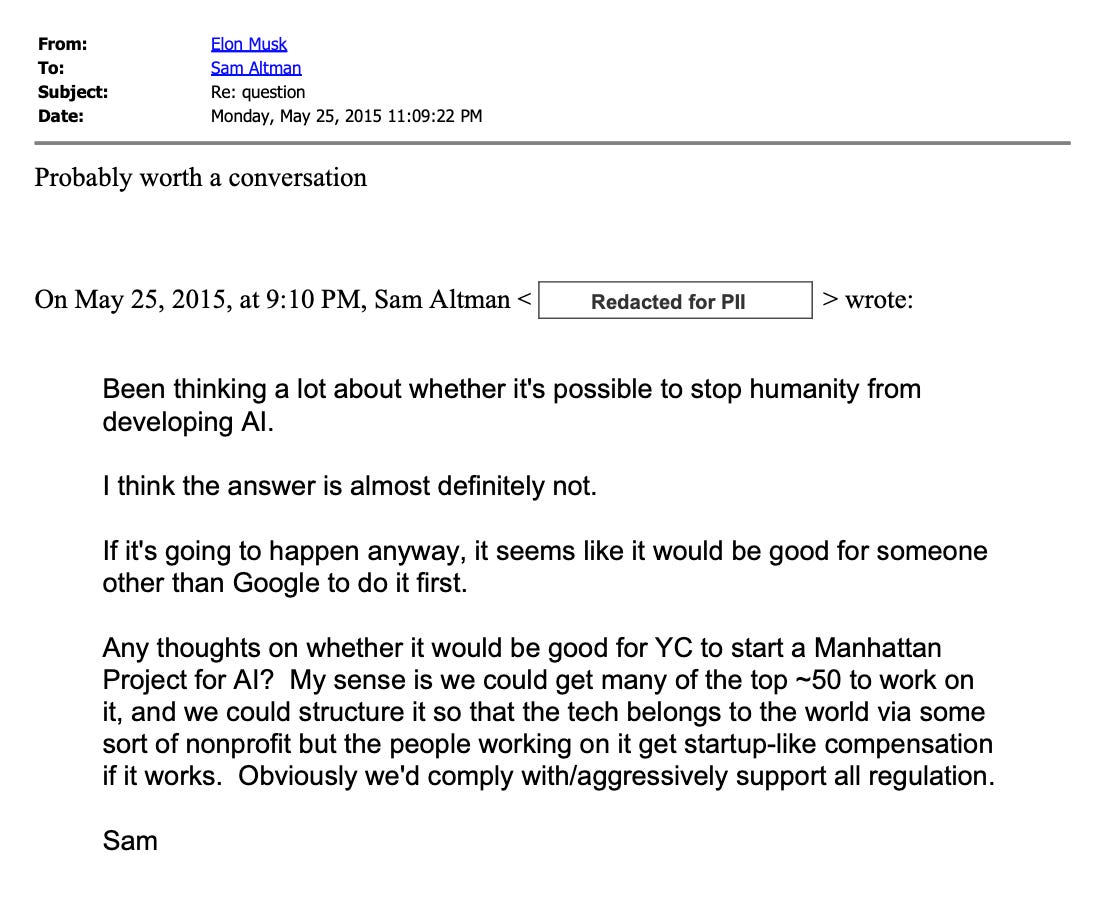New OpenAI emails reveal a long history of mistrust
Greg Brockman and Ilya Sutskever had questions about Sam Altman's intentions as early as 2017
New emails released as part of Elon Musk’s lawsuit against OpenAI reveal that the company’s fondness of drama is hardly new.
The emails show that as early as 2017, Greg Brockman and Ilya Sutskever had serious concerns about Sam Altman. They cover a period where the organisation’s cofounders were deciding who should run it, and whether or not to become a for-profit entity.
In an email on September 20, 2017 signed by both Brockman and Sutskever, the two said that they “haven't been able to fully trust [Altman’s] judgements throughout this process”.
“Is AGI truly your primary motivation? How does it connect to your political goals?”, they asked Altman.
The two raised similar concerns about Musk. “You stated that you don't want to control the final AGI, but during this negotiation, you've shown to us that absolute control is extremely important to you,” they wrote to him. “We are concerned that as the company makes genuine progress towards AGI, you will choose to retain your absolute control of the company despite current intent to the contrary … it is a bad idea to create a structure where you could become a dictator if you chose to.”
Neither Altman nor Musk seem to have taken the criticism well. Two days after Brockman and Sutskever’s email, Shivon Zillis — a close Musk associate who advised OpenAI — Zillis summarised a conversation she had with Altman, who she said “admitted that he lost a lot of trust with Greg and Ilya through this process”.
For his part, Musk replied directly to the two, saying that this was “the final straw” and that the group should “either go do something on your own or continue with OpenAI as a nonprofit”.
Here are some other juicy nuggets from the newly revealed emails:
Elon Musk really, really doesn’t like DeepMind…
“Deepmind is causing me extreme mental stress,” Musk wrote in 2016. “If they win, it will be really bad news with their one mind to rule the world philosophy.” And according to Brockman and Sutskever, Musk was “concerned that Demis [Hassabis] could create an AGI dictatorship”
Altman also seemed worried about the possibility of Google developing AGI. “Been thinking a lot about whether it's possible to stop humanity from developing AI. I think the answer is almost definitely not. If it's going to happen anyway, it seems like it would be good for someone other than Google to do it first,” he wrote in 2015.
For its part, DeepMind seemingly didn’t welcome the competition. “just got word that deepmind is going to give everyone in openAI massive counteroffers tomorrow to try to kill it,” Altman said.
… or Microsoft
Discussing an OpenAI partnership with Microsoft in 2016, Musk wasn’t happy. “This actually made me feel nauseous,” he said of the proposed terms. “Would be worth way more than $50M not to seem like Microsoft's marketing bitch.”
Sam Altman considered an initial coin offering
The emails suggest that Sam Altman considered launching a cryptocurrency to fund OpenAI.
Musk was not a fan of the idea, arguing that it would “simply result in a massive loss of credibility for OpenAI and everyone associated with the ICO”.
Open Philanthropy was not happy about OpenAI becoming a for-profit
According to Zillis, Altman said that “Holden was irked by the move to for-profit” — presumably referencing Holden Karnofsky, the former CEO of Open Philanthropy and at the time an OpenAI board member.
Karnofsky, Zillis reported, “potentially offered more substantial amount of money if OpenAI stayed a non-profit, but hasn't firmly committed. Sam threw out a $100M figure for this if it were to happen”.
Open Philanthropy is a major funder of AI safety efforts, and provided a $30m grant to OpenAI in 2017.
It all started with a four word email








